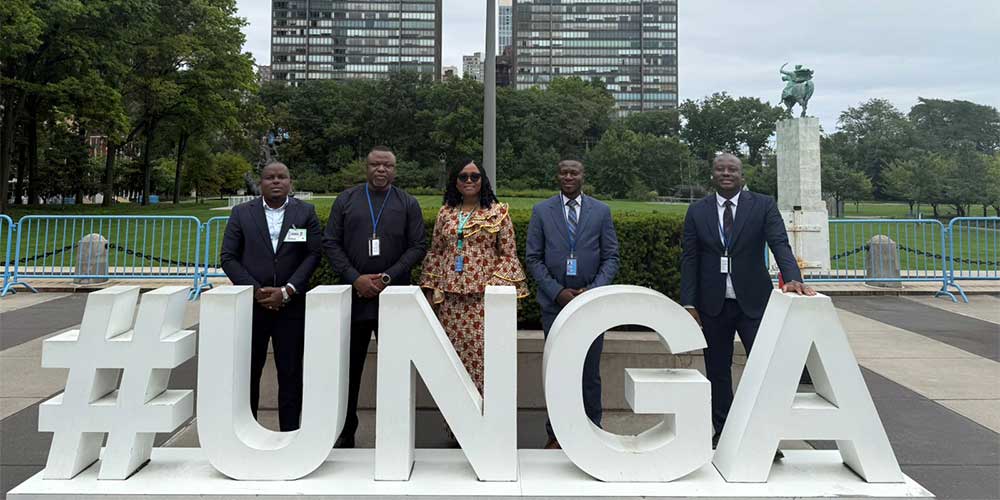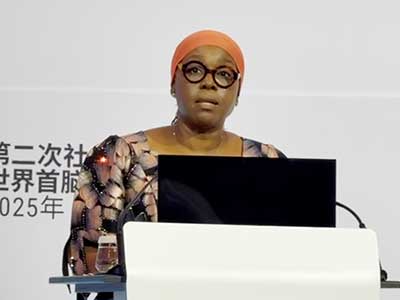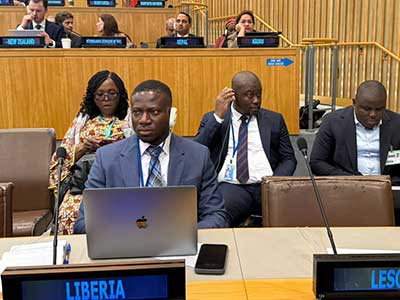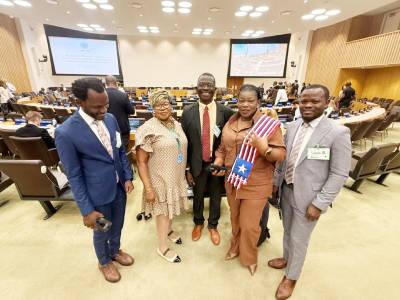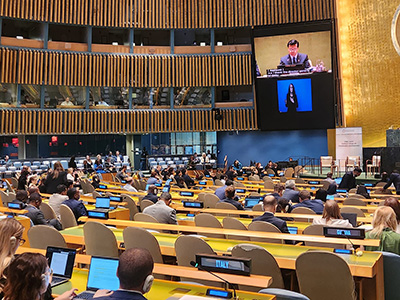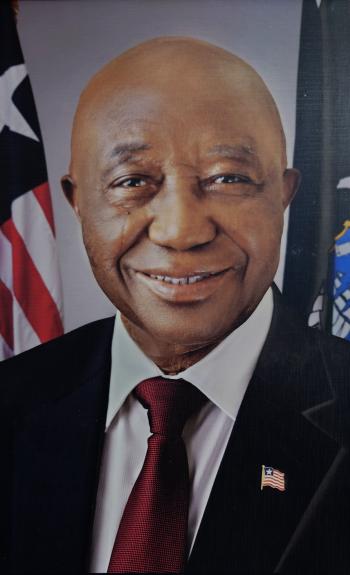At the second session of the Preparatory Commission (PrepCom 2) for the High Seas Treaty, a delegation from the Republic of Liberia is championing a future for ocean governance that is equitable, financially sustainable, and inclusive for all nations, particularly developing states.
The delegation is actively engaged in negotiations at United Nations Headquarters, where representatives of member states are deliberating and designing the operational framework for the landmark BBNJ (Biodiversity Beyond National Jurisdiction) Agreement. With 54 of the required 60 ratifications secured, the treaty’s entry into force is imminent, making the work of this PrepCom critical for its successful implementation.
In a statement delivered during discussions on the Clearing-House Mechanism, Liberia’s delegation outlined its core priorities. The statement, delivered by Liberia’s BBNJ Focal Point, Mr. Joseph F. Charles, aligned with the African Group’s position and the Group of 77 plus China, and emphasized that the mechanism must be lean, sustainable, equitable and accessible to all.
“The work on the Clearing-House Mechanism should include from the outset a clear focus on long-term financial sustainability,” Mr. Charles reminded the commission. “It must also embed capacity-building, inclusivity, and equitable access for Least Developed Countries (LDCs), Small Island Developing States (SIDS), and Landlocked Developing Countries (LLDCs) as operational principles.” He added.
Liberia’s intervention called for a practical and user-friendly platform that prioritizes key functions like tracking marine genetic resources and matching technology transfer needs. To ensure true global accessibility, the delegation insisted the system must be multilingual and functional in low-bandwidth settings, a critical point for nations with limited connectivity.
Beyond the digital framework, Liberia is advocating for equitable participation in the governance process itself. The delegation supports the creation of a lean, regionally balanced expert working group of 25-30 members, with guaranteed seats for experts from LDCs, SIDS, and LLDCs. Liberia also stressed the necessity of at least two in-person meetings to ensure meaningful engagement and overcome virtual connectivity challenges, alongside full multilingual interpretation to allow all experts to participate technically on an equal footing.
The Liberian delegation to PrepCom 2 is a multi-sectoral team comprising officials from the Ministry of Foreign Affairs, the Environmental Protection Agency (EPA), the National Fisheries and Aquaculture Authority (NaFAA), the Liberia Maritime Authority (LiMA), and civil society represented by the Society for the Conservation of Nature–Liberia (SCNL).
This diverse representation underscores Liberia’s whole-of-government and whole-of-society commitment to shaping a robust and fair treaty that protects the high seas—a global commons vital for climate regulation, food security, and the conservation of marine biodiversity.
The delegation includes Mr. Joseph F. Charles, BBNJ National Focal Point, Environmental Protection Agency (EPA); Atty. Rosetta N. Jackollie, Assistant Minister for Legal Affairs, Ministry of Foreign Affairs; Mr. Austin Saye Wehye; Director for Research and Statistics, National Fisheries and Aquaculture Authority (NaFAA); Mr. Bohmensahn B. Yuan, Director of Marine and Environmental Protection, Liberia Maritime Authority (LiMA); and Mr. Michael Forkpah Garbo, Executive Director, Society for the Conservation of Nature–Liberia (SCNL).

